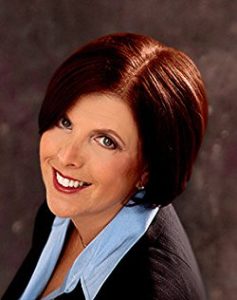 There are lots of reasons why talented people move from one job to another – more money, better opportunities, greater responsibility. But one key reason that is often forgotten is the appeal or "magnetism" that senior managers have to prospective employees.
There are lots of reasons why talented people move from one job to another – more money, better opportunities, greater responsibility. But one key reason that is often forgotten is the appeal or "magnetism" that senior managers have to prospective employees.
This is the idea behind Roberta Chinsky Matuson's new book, "The Magnetic Leader." In it, she proposes that "irresistible leaders" attract more than just great employees. Their ability to lead an energized and engaged workforce can also boost customer numbers and profits.
You may think that the kind of "pulling power" needed to be a magnetic leader is innate. And that, if you don't have it now, you never will.
As a talent-management coach, Matuson takes a nuanced view of this. On the one hand, she agrees that reluctant leaders will never be great ones. As she explains: "You cannot teach people desire, and if they don't want to be in that job, no matter how much training you do, they are not going to be an effective leader."
On the other hand, she affirms that, if a person really does want to lead and wants to succeed in their role, then they have the potential to become a magnetic leader.
It doesn't matter if this doesn't come naturally at first. "Some people find it more difficult than others to learn how to ride a bicycle, but eventually they master the skill and they go on to race professionally," she points out, in our Expert Interview podcast. "If you really want to do it, you can do it. You just have to be fully committed."
In her book she outlines the seven key traits that magnetic leaders have, starting with authenticity. It's a characteristic we hear a lot about these days, and I put it to Matuson that the benefits of authenticity depend on your personality. Being authentically selfish, for example, isn't going to increase your pulling power.
She agrees, adding that ultimately, it's consistency that matters. "Let’s just say you're a little prickly," she imagines. "You're a tough boss, but you're fair. Well, if you're consistent, people will appreciate it… They're never wondering, 'What does he really mean?’"
Another key trait is good communication. For Matuson, this means communicating frequently and clearly. But this can be difficult, particularly in the busy, multi-generational and geographically dispersed workplaces of today.
"We've got five generations in the workplace right now and their communication styles differ," clarifies Matuson. "For example, I'm a baby boomer. If you want to have a conversation with me, and we're not in the same building, pick up the phone. Stop with the texts already, because we could have resolved this issue in one minute [on the phone]. Whereas a younger person, a millennial, they're like, 'Why are you calling me? I don't answer my phone. Send me a text.’"
The way to reach team members of all ages is, first, to understand which mode of communication works best for them, and second, to be upfront about how you're going to communicate with them, bearing their preferred method in mind.
"A strong communicator would say to an employee, 'Listen, I get the fact that you love texts. I'm going to tell you right now that is not the way I communicate. So I am going to need you to check your emails once a day. I will be sending them and I will expect you to be reading them,’" Matuson asserts.
Another magnetic trait is having vision. But, what can you do if you don't feel very visionary?
"Surround yourself with the kind of people who are visionaries," Matuson suggests. "You have to attend events where you're meeting people who could perhaps become a mentor to you, somebody who is known in the industry for thinking big. And you have to let go of some of your self-limiting beliefs. You have to start looking ahead and seeing what's out there, and educating yourself, so that you can be in front of things rather than behind… We've all seen organizations which are floundering because they don't quite know who they are, and you don't see people jumping from their jobs to go work for a company that's in chaos."
The other four traits of the magnetic leader are selflessness, charisma, transparency, and resilience.
In this audio clip from our Expert Interview podcast, Matuson offers some tips on how you can develop these qualities, starting with the final one, resilience.
Listen to the full 30-minute interview in the Mind Tools Club. ¦ Install Flash Player.
What's your definition of a magnetic leader? What qualities do you think are most important in a magnetic leader? And do you think you have what it takes to be one? Join the discussion below!

"It started with an ice-breaker. I found myself face-to-face with the head of the whole company. And as I started answering the question, I began to cry, right in front of him. " Melanie Bell
Book Insight, Communication, Mental Health, Stress, Wellbeing
It's the age-old question senior members of the team always ask themselves... "What makes a good leader?" and "Am I one?" Speaking from personal experience, it's a tricky question to answer. I've had great leaders. Ones that have inspired me, guided me, and from whom I've learned a great deal. They're the ones that listened […]
One of the few spaces that can have real impact in improving LGBTQ+ equality is the workplace. But it takes effort; and it's not only up to our LGBTQ+ colleagues. It's up to the rest of us, too.